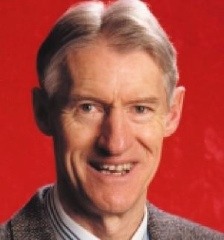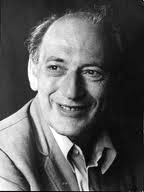
Psychology is the scientific study of mind and behavior. Psychology includes the study of conscious and unconscious phenomena, including feelings and thoughts. It is an academic discipline of immense scope, crossing the boundaries between the natural and social sciences. Psychologists seek an understanding of the emergent properties of brains, linking the discipline to neuroscience. As social scientists, psychologists aim to understand the behavior of individuals and groups. Ψ is a Greek letter which is commonly associated with the science of psychology.

Applied psychology is the use of psychological methods and findings of scientific psychology to solve practical problems of human and animal behavior and experience. Educational and organizational psychology, business management, law, health, product design, ergonomics, behavioural psychology, psychology of motivation, psychoanalysis, neuropsychology and in psychiatry the mental health, and are just a few of the areas that have been influenced by the application of psychological principles and scientific findings. Some of the areas of applied psychology include counseling psychology, industrial and organizational psychology, engineering psychology, occupational health psychology, legal psychology, school psychology, sports psychology, community psychology, neuropsychology, medical psychology and clinical psychology, evolutionary psychology, human factors, forensic psychology, traffic psychology. In addition, a number of specialized areas in the general area of psychology have applied branches. However, the lines between sub-branch specializations and major applied psychology categories are often mixed or in some cases blurred. For example, a human factors psychologist might use a cognitive psychology theory. This could be described as human factor psychology or as applied cognitive psychology. When applied psychology is used in the treatment of behavioral disorders there are many experimental approaches to try and treat an individual. This type of psychology can be found in many of the subbranches in other fields of psychology.
The British Psychological Society (BPS) is a representative body for psychologists and psychology in the United Kingdom.

Edwin Garrigues (Garry) Boring was an American experimental psychologist, Professor of Psychology at Clark University and at Harvard University, who later became one of the first historians of psychology. A Review of General Psychology survey, published in 2002, ranked Boring as the 93rd most cited psychologist of the 20th century, tied with John Dewey, Amos Tversky, and Wilhelm Wundt.

Michael Argyle was one of the best known English social psychologists of the twentieth century. He spent most of his career at the University of Oxford, and worked on numerous topics. Throughout his career, he showed strong preferences for experimental methods in social psychology, having little time for alternative approaches such as discourse analysis.
Michael Billig is a British academic. He is Emeritus Professor of Social Sciences at Loughborough University, working principally in contemporary social psychology although much of his work crosses disciplinary boundaries in the social sciences.
Brian James MacWhinney is a Professor of Psychology and Modern Languages at Carnegie Mellon University. He specializes in first and second language acquisition, psycholinguistics, and the neurological bases of language, and he has written and edited several books and over 100 peer-reviewed articles and book chapters on these subjects. MacWhinney is best known for his competition model of language acquisition and for creating the CHILDES and TalkBank corpora. He has also helped to develop a stream of pioneering software programs for creating and running psychological experiments, including PsyScope, an experimental control system for the Macintosh; E-Prime, an experimental control system for the Microsoft Windows platform; and System for Teaching Experimental Psychology (STEP), a database of scripts for facilitating and improving psychological and linguistic research.
David Ian Perrett FBA FRSE is a professor of psychology at the University of St Andrews in Scotland, where he leads the Perception Lab. The main focus in his team's research is on face perception, including facial cues to health, effects of physiological conditions on facial appearance, and facial preferences in social settings such as trust games and mate choice. He has published over 400 peer-reviewed articles, many of which appearing in leading scientific journals such as the Proceedings of the Royal Society of London Series B - Biological Sciences, Psychological Science, and Nature.
Oliver Louis Zangwill FRS was an influential British neuropsychologist. He was Professor of Experimental Psychology, University of Cambridge, 1952–1981, and then Professor Emeritus. His father was author Israel Zangwill; his mother was author Edith Ayrton, whose parents were physicist William Edward Ayrton and physician Matilda Chaplin. He was elected a Fellow of the Royal Society in 1977.
Harold Schlosberg was an American psychologist who was professor of psychology at Brown University from 1928 until the end of his life. Born in Brooklyn, N.Y, Schlosberg earned his Bachelor's (1925) and Ph.D. (1928) degrees from Princeton University. An experimental psychologist, Schlosberg made notable contributions on subjects ranging from conditioned reflexes to the expression of human emotions. He co-authored the 1954 2nd edition of Experimental Psychology, an influential textbook used by a generation of graduate students. Schlosberg served as chairman of Brown's Department of Psychology from 1954 until his death in 1964. As Chair, he was responsible for planning the construction of Hunter Laboratory, at the time a state-of-the-art building expressly designed for undergraduate teaching and the requirements of psychological research, from animal behavior to visual perception.

Robert Allen Bjork is Distinguished Professor of Psychology at the University of California, Los Angeles. His research focuses on human learning and memory and on the implications of the science of learning for instruction and training. He is the creator of the directed forgetting paradigm. He was elected a member of the National Academy of Sciences in 2022.

Henri Tajfel was a Polish social psychologist, best known for his pioneering work on the cognitive aspects of prejudice and social identity theory, as well as being one of the founders of the European Association of Experimental Social Psychology.
Adrian Raine is a British psychologist. He currently holds the chair of Richard Perry University Professor of Criminology & Psychiatry in the Department of Criminology of the School of Arts and Sciences and in the Department of Psychiatry of the School of Medicine at the University of Pennsylvania. He is noted for his research on the neurobiological and biosocial causes of antisocial and violent behavior in children and adults. He was the first scientist to use neuroimaging to study the brains of murderers. His 2013 book The Anatomy of Violence won that year's Athenaeum Literary Award.
In psychology, anomalistic psychology is the study of human behaviour and experience connected with what is often called the paranormal, with few assumptions made about the validity of the reported phenomena.

Hans Gerhard Fürth or Hans G. Furth was a Professor emeritus in the Faculty of Psychology of the Catholic University of America in Washington, D.C.
Calvin Perry Stone was an American psychologist, known for his work in comparative and physiological psychology. He was also a past president of the American Psychological Association (APA) and a member of the National Academy of Sciences (NAS).

The UCL Division of Psychology and Language Sciences is a Division within the Faculty of Brain Sciences of University College London (UCL) and is located in London, United Kingdom. The Division offers teaching and training and undertakes research in psychology and communication and allied clinical and basic science. It is the largest university psychology department in England.
Mary Collins (1895–1989) was an expert in colour vision, and psychology lecturer at Edinburgh University.
Robert John Audley was a British psychologist whose research was concerned with choice and decision-making.
George C. Drew was a British experimental psychologist.






